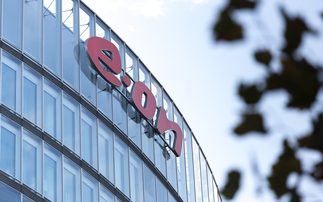Sterling fell in mid-morning trading on the announcement that UK inflation unexpectedly fell to 2.6% over the 12 months to June 2017, down from 2.9% in May.
The figure, released by the Office for National Statistics (ONS) comes as a surprise as economists had forecast it would hold at the four-year high of 2.9% reached in May.
As a result, sterling fell 0.18% from $1.3055 to $1.3020 as investors began to reduce expectations of an interest rate hike in August.
Falling petrol & diesel prices were the main contributors to the drop in the Consumer Price Inflation (CPI) annual rate, while the growth rate of factory gate prices also fell to 3.3% from 3.6%.
Meanwhile, core inflation - which excludes volatile food and energy prices - also slipped from 2.6% in May, to 2.4% in June.
ONS deputy national statistician, Jonathan Athow, said: "Today's fall in inflation is mainly due to drops in petrol and diesel prices. However, the rate remains higher than in the recent past.
"Petroleum products were mainly behind the drop in the annual growth rate of factory gate prices. Likewise, crude oil was mainly responsible for the recent slowing of input price inflation, with both its dollar price down and some recovery in sterling.
"Meanwhile, house prices continue to go up, but the rate of increase has slowed since mid-2016. London saw the second-slowest annual growth of any part of the UK."
Last month, the ONS reported GDP rose to 2.9%, levels not seen since 2013. It has been steadily climbing this year on the back of the fall in sterling, with 1.8% recorded in January.
Reaction
Ben Brettell, senior economist at Hargreaves Lansdown, said the fall is good news for "squeezed household budgets", while the likelihood of an imminent interest rate rise in the UK will be reduced: "The news sent the pound sharply lower as currency traders adjusted their outlook for interest rates.
"The Bank of England's rhetoric has taken an increasingly hawkish tone in recent weeks, with Mark Carney himself saying at the end of last month that "some removal of monetary stimulus is likely to become necessary"... [and] three members of the rate-setting committee voted to raise rates last month.
"If inflation continues to moderate, this could bode well for economic growth - the UK economy is heavily reliant on the consumer, and economists had expected falling real incomes to eventually translate into lower retail sales. If this fails to materialise the economy could see a stronger second half to the year."
Aberdeen Asset Management's chief economist Lucy O'Carroll commented: "These numbers are a real surprise, showing the first drop in inflation since autumn 2016. Lower fuel prices have pulled down the inflation rate more than expected. But we have also not seen the impact from rising food prices that we were expecting, either.
"This is going to kill the chances of a rate rise in the short term. We will learn more about the Bank of England's thinking in a couple of weeks, but we can expect the calls for a rate rise to reduce to a whimper."
Smith & Williamson's global inflation-linked bond fund manager Thomas Wells added: "This outturn will relieve pressure on the MPC to raise rates this year. However, it is worth remembering that UK index-linked gilts are linked to RPI, which remains elevated at 3.5%.
"The real story in the UK is wage inflation, where growth is still negative in real terms - i.e. running behind inflation - and has been for the last three months.
"We see the Bank of England looking though the inflation data while trying to keep policy accommodative. Therefore, we would expect CPI inflation to head back down, getting closer to the targeted 2% as we enter 2018."
Ian Kernohan, economist at Royal London Asset Management, said: "In some good news on inflation, CPI fell to 2.6% in June, still above the Bank of England's target but down from its recent peak, with the fall in fuel prices the major contributor to the decline.
"Although sterling is now close to its level of 12 months ago, some residual impact of devaluation is still feeding through. However, with underlying inflationary pressures still low, we think that CPI is close to topping out, and the Bank of England will be happy to keep interest rates on hold."







